- Home
- slideshows
- miscellaneous
- These 9 political friendships proved party lines don't have to divide Americans
These 9 political friendships proved party lines don't have to divide Americans
President Ronald Reagan and House Speaker Tip O'Neill

John Boehner and Barack Obama
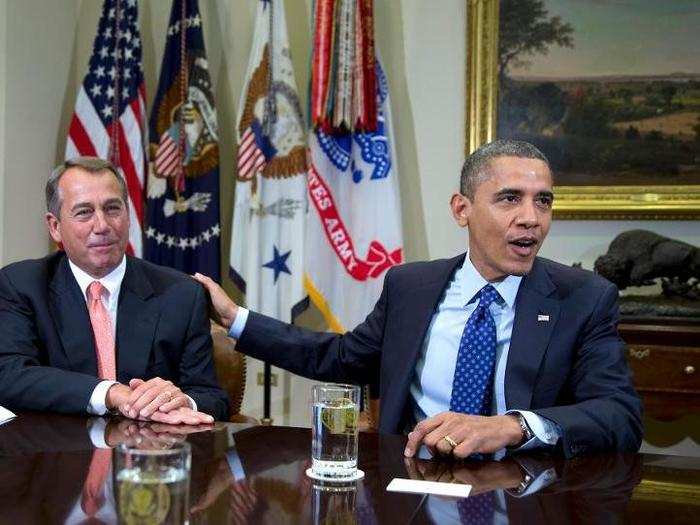
The former Democratic president and Republican house speaker from Ohio often clashed on policy — famously so when the 2011 "grand bargain" budget deal fell apart — but still maintained a respectful working relationship while Boehner was speaker.
The two would famously discuss strategy and hash out disagreements in the Rose Garden outside the White House, during which Boehner would smoke cigarettes and Obama, a former smoker, would chew nicotine gum.
Boehner even recalled having to "sneak in" into the White House to meet with Obama to avoid the press from "going crazy."
"We were having a nice conversation and finally the president says, 'Boehner, man, I'm going to miss you," Boehner said of Obama's phone call to him after he retired as Speaker of the House in 2015.
Boehner even made a cameo in a comedic video Obama showed at the 2016 White House Correspondents Dinner during which they joked around and watched "Toy Story."
"I understand him, he understands me, and while we had big disagreements, we were able to get an awful lot of things done, somehow. Don't ask me how," he added.
Sources: Cleveland.com, Business Insider, Washington Post, Vox
Senator John Kerry and Senator John McCain
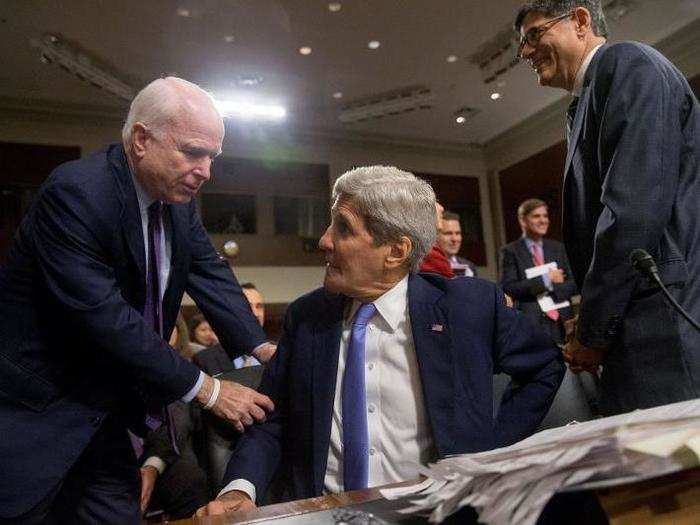
John Kerry and John McCain shared the distinct path of serving in the Vietnam War to being elected to the US Senate.
McCain famously spent six years as a prisoner of war in Hanoi, while Kerry — a former Navy officer — led a signature protest in which a thousand Vietnam veterans tossed medals and ribbons won in the war over a barricade into the vicinity of the US Capitol.
While McCain strongly disagreed with Kerry's protest at the time, the two ended up working together on Vietnam veterans issues while serving on the former select Senate committee on POW/MIA soldiers.
"We got to know each other and began to work together on some things, particularly on the normalization and lifting of the embargo with Vietnam. And John was willing to tackle things that a lot of other people weren't willing to tackle, so we found some common ground in strange places," Kerry told NPR in 2017.
Sources: The New Yorker, NPR
Senator Orrin Hatch and Senator Ted Kennedy
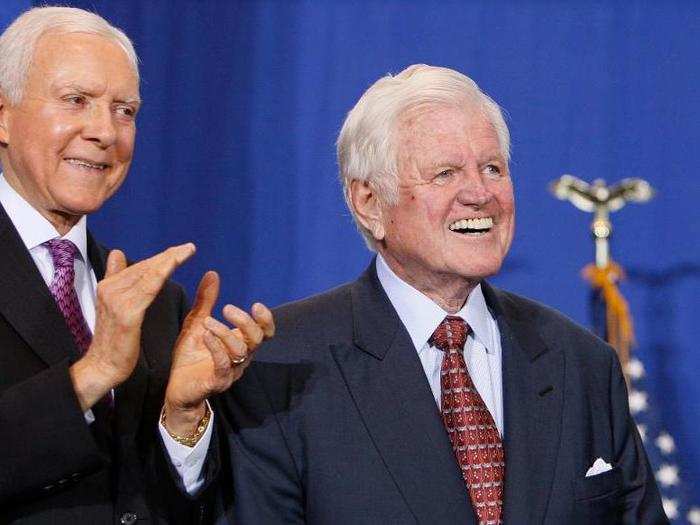
"I have to say that we became very dear friends. That doesn't mean we didn't fight each other. We fought each other like tooth and tongue but afterwards, we'd put our arms around each other and laugh about it," Hatch told NPR in 2009 after Kennedy's death.
"And we passed a lot of very important legislation together, and I will greatly miss him," he added.
Hatch recounted one instance where Kennedy tried to convince Hatch to agree with him on a provision of a bill by having his chief of staff "serenade" Hatch, a songwriter, with a song he had written.
Hatch also wrote a song dedicated to Kennedy, which he titled "Headed Home," when Kennedy was diagnosed with cancer.
Source: NPR
Senator Joe Biden and Senator John McCain
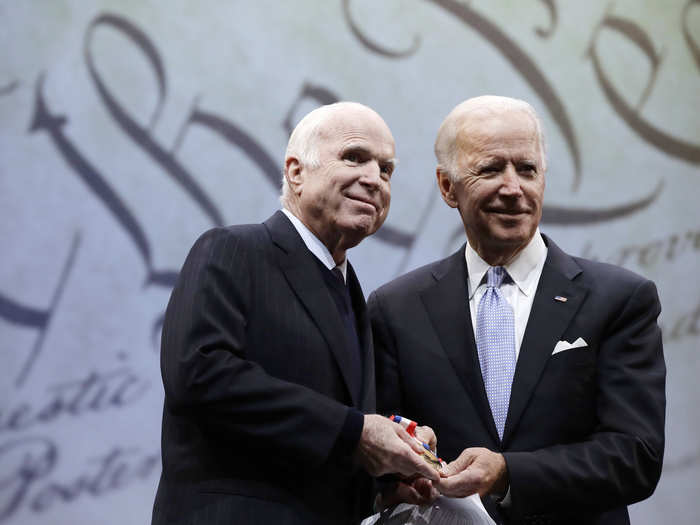
"My name's Joe Biden. I'm a Democrat. And I loved John McCain," Biden said at the beginning of his emotional eulogy of John McCain during his August memorial service.
"We'd talk about family," Biden remembered of his friendship with McCain. "We'd talk about politics. We'd talk about international relations. We'd talk about promise — the promise of America."
While from different political parties, McCain and Biden held a famously close friendship over the decades they served in Congress together, and lasted when they ran on opposing presidential tickets in 2008.
"Above all, we understood the same thing: All politics is personal," Biden said. "It's all about trust. I trusted John with my life, and I would, and I think he would trust me with his."
Sources: Business Insider, NBC
Bill Clinton and both Bush presidents, George H.W. Bush and George W. Bush
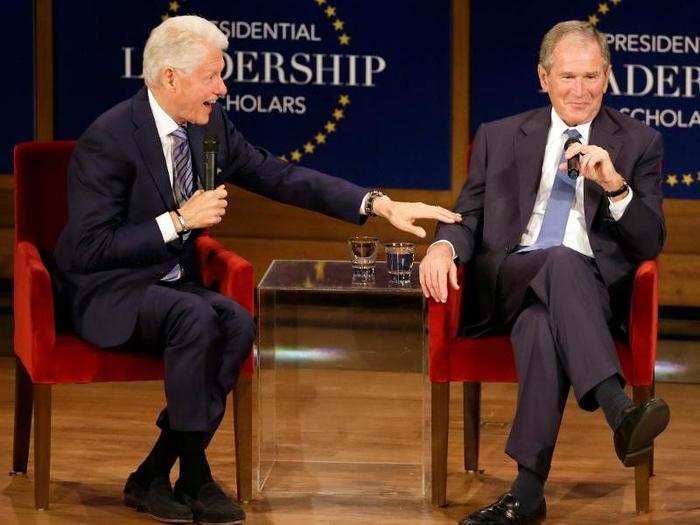
During the 1990s, President Bill Clinton clashed with his both his predecessor and the man who would replace him.
But during the 21st century, Clinton's relationship with the Bushes became decidedly more amicable, with all three former Presidents expressing newfound respect and admiration for each other.
They've gotten so close that George W. now refers to Clinton as his “brother with a different mother," and his daughter Jenna calls Clinton "Uncle Bill."
Clinton and George H.W. Bush traveled together to help with relief efforts after a tsunami struck Southeast Asia and then later to the site of Hurricane Katrina, becoming fast friends along the way.
Source: The Washington Post
Supreme Court Justices Ruth Bader Ginsburg and Antonin Scalia
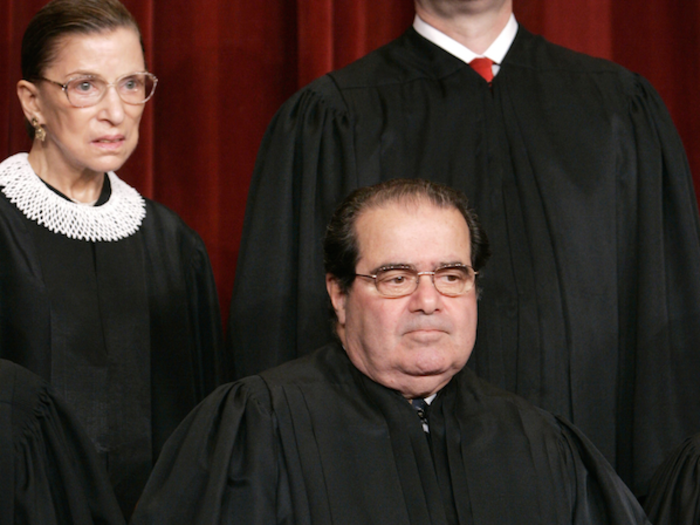
These two Supreme Court Justices had markedly different judicial philosophies and ways of interpreting the US Constitution, but they maintained a close friendship for decades, sharing a home state of New York and a passion for opera, even spending holidays with each other's families before Scalia's 2016 death.
“If you can’t disagree ardently with your colleagues about some issues of law and yet personally still be friends, get another job, for Pete’s sake,” Scalia once said of his friendships with colleagues.
Bader Ginsburg reflected in an interview with The Washington Post on how much she appreciated the intellectual rigor and healthy clash of ideas in their friendship.
“As annoyed as you might be about his zinging dissent, he’s so utterly charming, so amusing, so sometimes outrageous, you can’t help but say, ‘I’m glad that he’s my friend or he’s my colleague,'" she said.
Sources: The Washington Post
President Richard Nixon and baseball player Jackie Robinson
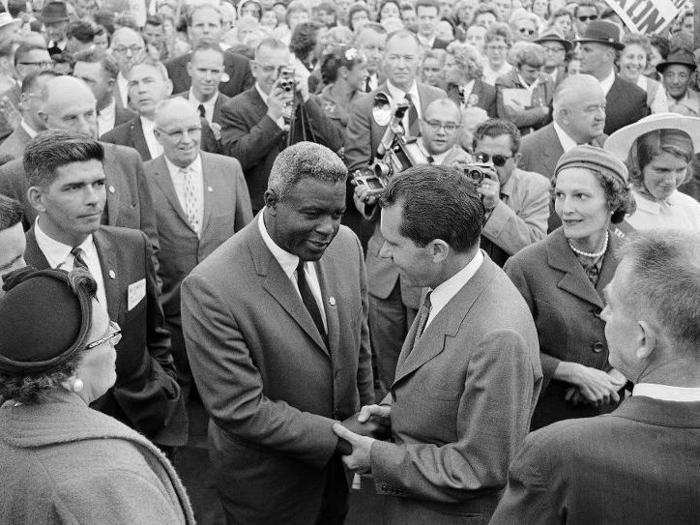
While the former Republican president and baseball legend who played a key role in integrating major league baseball seem like an especially unlikely pair, Robinson and Nixon were allied in the early 1960s.
Robinson endorsed Nixon's 1960 campaign for president over Democratic rival John F. Kennedy, decrying Kennedy's commitment to civil rights as "insincere," and accompanying Nixon at campaign stops around the country.
Robinson later went on to also support the campaign of Republican David Rockefeller for governor of New York, but quickly changed his tune when the Republican Party re-aligned to be more opposed to civil rights measures than the Democratic Party.
Robinson was reportedly "furious" over Nixon's support of anti-civil rights senator Strom Thurman, and complained in a letter just weeks before his 1972 death that Nixon was "polarizing the country."
Source: New York Times
German Chancellor Angela Merkel and former French president Nicholas Sarkozy
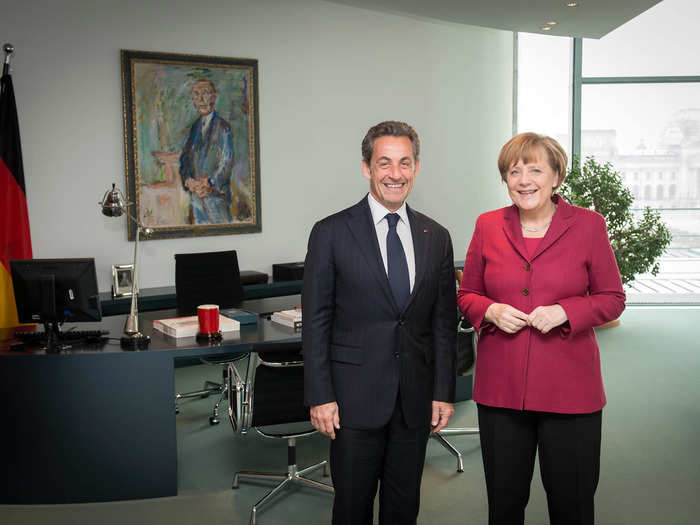
Dubbed "Europe's odd couple" and given the moniker "Merkozy," the two European leaders exemplified very different political styles and clashed on occasion, but still maintained a close working partnership and friendship.
Sarkozy traveled to Germany to support Merkel in the 2009 legislative elections, and Merkel returned the favor and helped campaign for Sarkozy's presidential bid in 2012, which he ultimately lost.
"We are friends, we are allies, we understand each other better and better," Sarkozy said of Merkel in 2012.
"When she speaks, she speaks for the whole of Germany, not just those of the left or the right; and it is the same when I speak: I speak for France," he added. "People who don't understand this don't know us very well: our countries are more important than we are."
Source: The New York Times, The Guardian
Popular Right Now
Popular Keywords
Advertisement